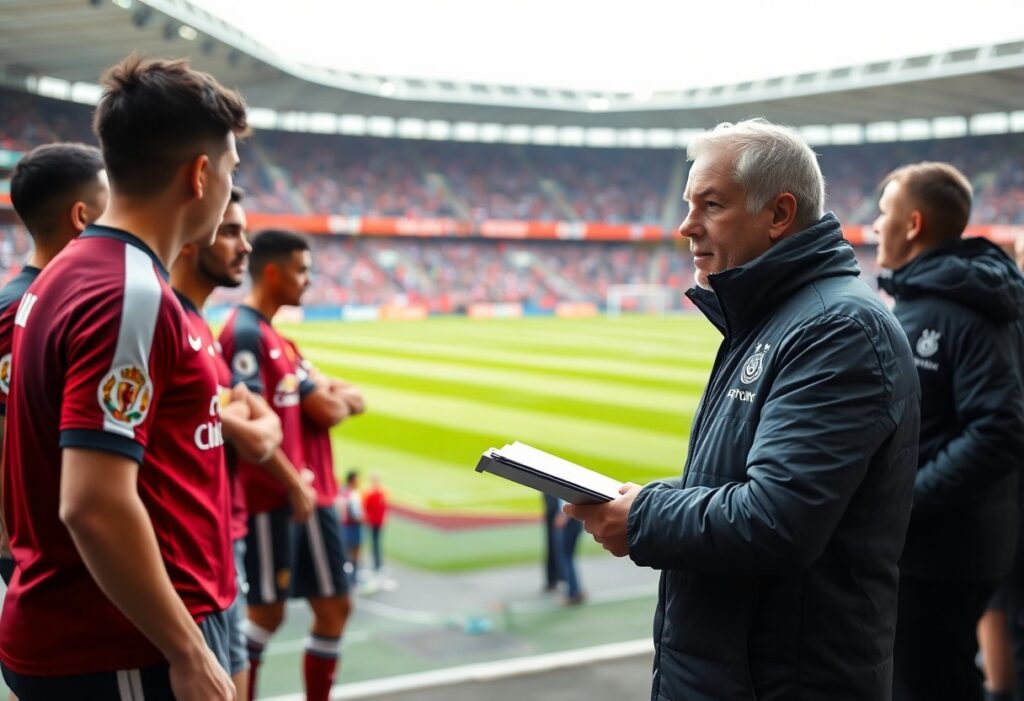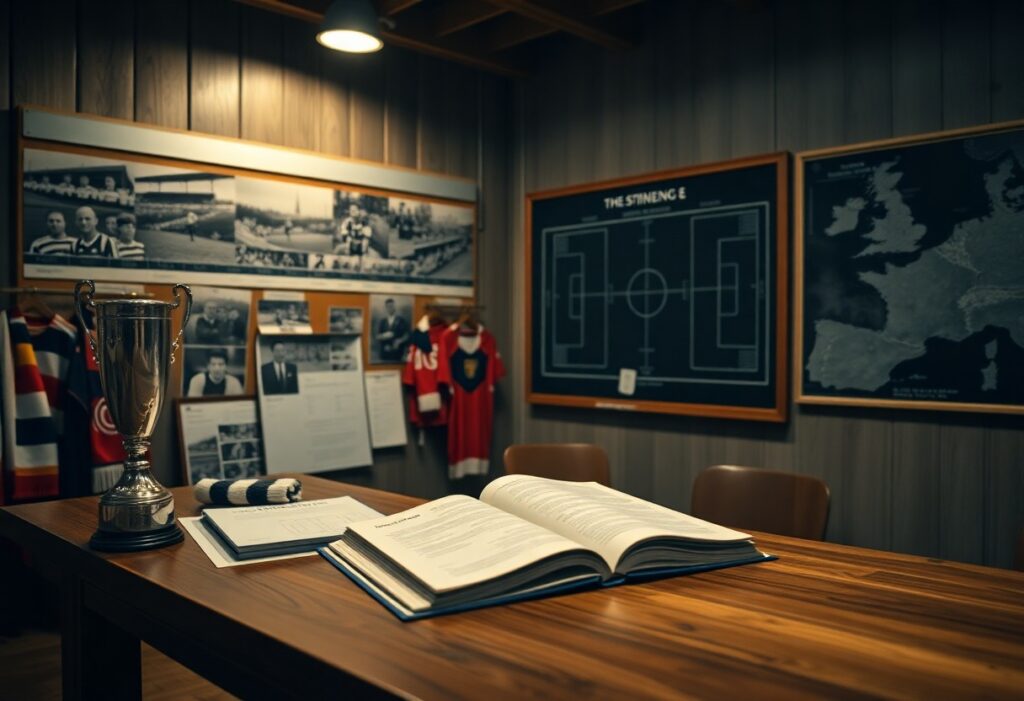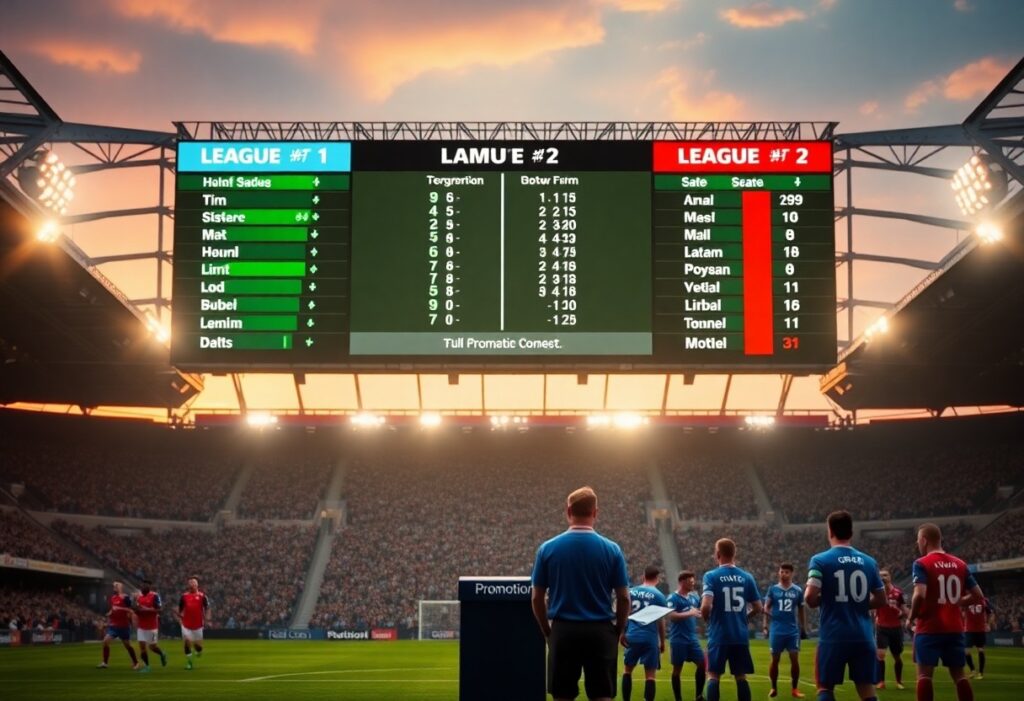
This guide explores the significant impact of managers in the Premier League, highlighting the characteristics that define effective leadership within one of the most competitive football environments. Successful managers exhibit a blend of strategic vision, communication skills, and the ability to motivate players while making challenging decisions that can affect not just their team’s performance, but also their position in the league. Understanding these elements is vital for recognizing what makes a manager great in this high-stakes arena.
Types of Managers in the Premier League
- Tactical Managers
- Motivational Leaders
- Player Development Specialists
- Club Strategists
- Interim Managers
| Type | Description |
| Tactical Managers | Focus on game strategy and formations. |
| Motivational Leaders | Inspire and uplift players internally. |
| Player Development Specialists | Nurture young talent and improve skills. |
| Club Strategists | Oversee long-term vision for success. |
| Interim Managers | Steer clubs through transitional phases. |
Tactical Managers
Tactical Managers excel in devising strategies for matches, carefully analyzing opponents’ strengths and weaknesses. With a keen eye on formations and real-time adjustments, they shape the team’s playing style, ensuring players perform at their best. Managers like Pep Guardiola exemplify this type, employing innovative tactics to create winning teams.
Motivational Leaders
Motivational Leaders possess the unique ability to inspire and energize players, fostering a strong team spirit. They build trust and rapport, ensuring every player feels valued and understood. Jurgen Klopp is a prime example of this leadership style, consistently revitalizing his team’s morale, leading to impressive performances on the pitch.
Motivational Leaders not only focus on the technical aspects of the game but also cultivate a positive environment that encourages players to reach their full potential. They utilize psychological techniques, emphasizing the importance of mental resilience and teamwork. Their efforts can significantly influence performance, often transforming a struggling squad into a formidable unit. These managers create a culture where players thrive, driving them to achieve collective and individual success, both on and off the field.
Essential Leadership Traits
Great managers in the Premier League possess a unique blend of leadership traits that not only inspire their teams but also drive performance. These traits include strong communication skills, decisive decision-making abilities, and emotional intelligence. Managers who embody these qualities can effectively motivate their players, foster a positive team culture, and navigate the pressures of high-stakes matches.
Communication Skills
Effective communication is a hallmark of successful managers. They convey their vision clearly and engage in open dialogue with players, ensuring everyone understands their roles and responsibilities. A great example is Jürgen Klopp, whose ability to galvanize his squad through clear, motivating messages has led to Liverpool’s resurgence under his leadership.
Decision-Making Abilities
Strong decision-making abilities are vital for managers, especially during high-pressure situations. Leaders must analyze various factors quickly, such as player performance, injuries, and tactical changes, to make informed choices that can alter the course of a match. Managers like Pep Guardiola exemplify this trait, frequently making real-time adjustments that have resulted in unprecedented success for Manchester City.
For instance, Guardiola’s tactical flexibility was evident during the 2021/2022 season when he often shifted formations mid-game to exploit opponents’ weaknesses. His decisions not only reflect an understanding of his players’ strengths but also a deep analysis of the opposition, showcasing how critical timely and well-founded decisions can lead to victories. In a league where even a single point can determine the title, the impact of adept decision-making cannot be understated.
Factors Affecting Managerial Success
Numerous elements contribute to the overall success of managers in the Premier League. Key factors include their ability to adapt to changing circumstances, understanding of player psychology, and effective communication skills. Other influences encompass club culture, squad dynamics, and external pressures from fans and media. Furthermore, managers must navigate financial constraints and deal with player injuries. Thou must acknowledge that each factor intertwines with others, shaping a manager’s effectiveness.
Club Culture
The club culture significantly shapes how a manager leads and motivates their team. A positive environment fosters unity and encourages player development, while a toxic atmosphere can lead to discord. Managers must align their vision with the club’s ethos to harness the full potential of their squad. Success stories, such as Jurgen Klopp at Liverpool, illustrate how a well-defined culture can energize a team, creating a winning mentality that transcends tactical strategies.
Squad Dynamics
Squad dynamics refer to the relationships among players and the overall team atmosphere. A manager’s ability to manage personalities and ensure harmony is vital for team morale and performance. Establishing clear roles and promoting healthy competition among players can drive success. Managers who recognize the intricate balance of friendships and rivalries within their squads can better navigate challenges and exploit their players’ strengths, enhancing overall team productivity.
For instance, when Maurizio Sarri took charge of Chelsea, he faced the challenge of integrating star players like Eden Hazard with young talents. His focus on fostering communication and camaraderie helped mitigate underlying tensions, allowing players to thrive collectively. Understanding the complex web of interpersonal relationships can significantly impact a manager’s effectiveness. Ultimately, the success of a Premier League manager often hinges not just on tactics but on their dexterity in managing squad dynamics and building a cohesive unit.
Tips for Aspiring Managers
To thrive in managerial roles within the Premier League, consider these key strategies:
- Communicate clearly with your team
- Make data-driven decisions for tactical changes
- Foster a winning mentality among players
- Adapt to challenges and remain resilient
- Prioritize player development to enhance club dynamics
Knowing how to implement these practices can set visionary leaders apart in the competitive realm of football management.
Building Relationships
Establishing strong relationships within your team fosters trust and loyalty. A supportive atmosphere encourages players to express themselves and enhances team cohesion. Share individual feedback regularly, and actively listen to their concerns, ensuring that every voice is valued. Engaging in team-building activities can also strengthen these bonds, creating a unified squad equipped to tackle challenges together.
Continuous Learning
A successful manager prioritizes continuous learning, keeping up-to-date with the ever-evolving tactics and technologies in football. Attend coaching clinics, gain insights from seasoned professionals, and analyze successful managers’ approaches. Opportunities to learn from international experiences or through adapting innovative analytics tools can greatly enhance your managerial acumen.
For instance, analyzing case studies of managers who adapted their strategies based on player performance data has proven effective. Clubs often explore how modern tactical advancements, such as playing styles influenced by data analytics, can reshape their game plans. With evolving methodologies, incorporating feedback and adapting from past seasons or international plays cultivates a well-rounded managerial perspective.
Pros and Cons of Different Management Styles
| Pros | Cons |
|---|---|
| Authoritarian leaders provide clear direction. | May stifle player creativity and autonomy. |
| Democratic managers foster teamwork and morale. | Can lead to slower decision-making processes. |
| Hands-on approach allows for immediate feedback. | Risks over-involvement and micromanagement. |
| Delegative leaders empower players to take initiative. | Possible lack of direction and accountability. |
| Focus on strategies can improve tactical awareness. | May alienate players seeking personal growth. |
| Quick adaptation to challenges in authoritarian style. | Can create fear-based compliance. |
| Democratic style enhances squad unity. | Potential for conflict during disagreements. |
| Hands-on can build strong relationships with players. | Can overwhelm managers with excessive responsibilities. |
| Delegation frees up time for strategic planning. | Risk of not having enough control over outcomes. |
Authoritarian vs. Democratic
Authoritarian management prioritizes control and directives, ensuring that players receive clear instructions. This style can be effective in achieving immediate results, especially under pressure. However, it often leads to decreased player morale and creativity, which are vital for long-term success. On the other hand, democratic leaders promote inclusive environments where players contribute to decisions, enhancing teamwork and buy-in. While this fosters a collaborative atmosphere, it can potentially slow down critical decision-making processes, especially when time is of the essence in match situations.
Hands-On vs. Delegative
A hands-on management style involves direct engagement with players, allowing for timely feedback and tactical adjustments. This approach builds strong relationships but runs the risk of micromanagement, possibly leading to resentment. Conversely, a delegative leader entrusts responsibilities to players, empowering them to make choices on the field. While this cultivates player development and accountability, it may result in a lack of cohesive strategy if not monitored appropriately.
The contrast between hands-on and delegative styles showcases a balance of control and autonomy. For instance, a successful manager like Jürgen Klopp adopts a hands-on approach in training sessions, ensuring players understand tactical nuances. However, he also empowers players during matches to make decisions, combining effective leadership with freedom. This duality enables players to thrive while maintaining a clear structure, illustrating the importance of finding the right balance to foster both individual growth and team success.
Step-by-Step Guide to Effective Management
| Setting Goals |
Setting clear and measurable goals is fundamental for any Premier League manager. These objectives not only provide direction but also establish expectations for the team. For instance, a club may aim for a top-four finish, which guides training, player acquisitions, and match strategies. |
| Monitoring Progress |
Regularly monitoring progress against established goals is crucial for a manager’s success. This involves analyzing game performances, player statistics, and overall team cohesion. Adjustments can be made based on these insights to ensure the team stays on track for their season objectives. |
Monitoring Progress
To effectively monitor progress, managers should utilize advanced analytics and performance metrics. This includes reviewing match footage, assessing individual player contributions, and tracking team dynamics through specified KPIs. For example, utilizing data from platforms like Opta or StatsBomb enables managers to make informed decisions about tactics and player rotations. Frequent team meetings reinforce accountability, allowing players to discuss challenges and collaboratively adjust strategies, ensuring continuous improvement throughout the season.
Conclusion
Presently, the role of managers in the Premier League extends beyond tactical prowess; it encapsulates the essence of effective leadership. Great leaders inspire their teams, fostering an environment where players can thrive both individually and collectively. They blend strategic insight with emotional intelligence, navigating the pressures of high-stakes matches and media scrutiny. Ultimately, the ability to motivate, communicate, and adapt determines a manager’s success, shaping not only the performance on the pitch but also the future of the club.
FAQ
Q: What qualities define a great manager in the Premier League?
A: A great manager in the Premier League typically possesses strong communication skills, strategic thinking, and emotional intelligence. They can inspire and motivate players, make tactical decisions during matches, and adapt to different situations and opponent strategies.
Q: How do managers influence team performance on and off the pitch?
A: Managers influence team performance by creating a positive team culture, establishing clear goals, and implementing effective training regimens. Off the pitch, they develop relationships with players, support their development, and manage public relations, which affects team morale and public perception.
Q: What role does a manager play in player development in the Premier League?
A: A manager plays a significant role in player development by providing guidance, identifying strengths and weaknesses, and offering tailored training plans. They also create opportunities for younger players to gain experience, ensuring a pipeline of talent for the team’s future success.



